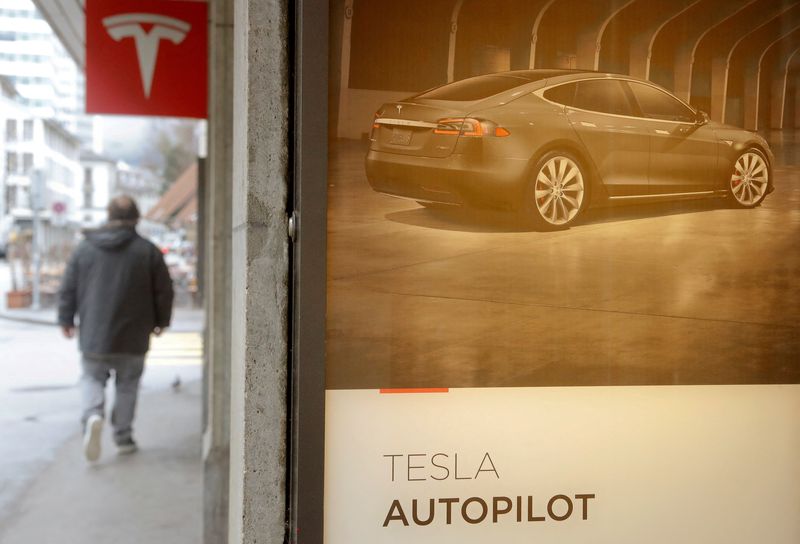By Dan Levine and Hyunjoo Jin
SAN FRANCISCO (Reuters) - A Tesla (NASDAQ:TSLA) engineer in court on Wednesday rejected a lawyer's suggestion that the company named its driver-assistant feature "Full Self-Driving" because it wanted people to believe that its systems had more abilities than was really the case.
The electric-vehicle maker is defending itself at the first U.S. trial over allegations that Tesla's Autopilot feature led to a death. The lawsuit, filed in a California state court, alleges the Autopilot system caused owner Micah Lee’s Model 3 to suddenly veer off a highway east of Los Angeles at 65 miles per hour (105 kph), strike a palm tree and burst into flames, all in the span of seconds.
The 2019 crash killed Lee and seriously injured his two passengers. The lawsuit accuses Tesla of knowing that Autopilot and other safety systems were defective when it sold the car.
Tesla denies the claims, saying it is not even clear whether Autopilot was engaged at the moment Lee’s car crashed.
The EV maker has been testing and rolling out its Autopilot and more advanced Full Self-Driving (FSD) system, which Chief Executive Elon Musk has touted as crucial to his company's future but which has drawn regulatory and legal scrutiny.
The 37-year-old Lee bought Tesla's “full self-driving capability package” for $6,000 for his Model 3 in 2019. At that time, the FSD package performed functions such as maintaining distance from a vehicle in front and keeping the car within the lane, Tesla engineer Eloy Rubio Blanco testified in court on Wednesday. The automaker later added more advanced features to the system.
During his testimony, Rubio rejected a suggestion from Lee's attorney that the company chose the name "Full Self-Driving" because it hoped the public would think its vehicles had more features.
"Do I think our drivers think that our vehicles are autonomous? No," Rubio said, according to a trial transcript seen by Reuters.
However, Rubio also acknowledged that Tesla vehicles sold in 2019 might have “latent defects” due to the complexity of the vehicle software.

He said Tesla's driver-assistant system "has a series of limitations," which is why a driver should override the system when needed. For example, he said an object might be detected inaccurately, leading the car to decelerate. In certain situations, he said, the automatic braking might be insufficient to avoid a collision.
Tesla asked that Rubio's testimony be kept private due to trade secrets. The judge ejected that request, though he shut down the court's live audio feed during Rubio's appearance.